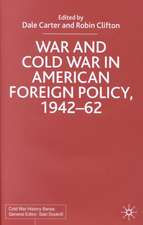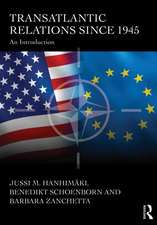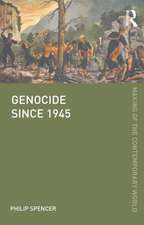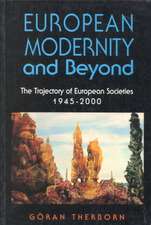Reassessing Orientalism: Interlocking Orientologies during the Cold War: Routledge Studies in the History of Russia and Eastern Europe
Editat de Michael Kemper, Artemy M. Kalinovskyen Limba Engleză Hardback – 9 feb 2015
| Toate formatele și edițiile | Preț | Express |
|---|---|---|
| Paperback (1) | 445.56 lei 6-8 săpt. | |
| Taylor & Francis – 25 mai 2017 | 445.56 lei 6-8 săpt. | |
| Hardback (1) | 1279.68 lei 6-8 săpt. | |
| Taylor & Francis – 9 feb 2015 | 1279.68 lei 6-8 săpt. |
Din seria Routledge Studies in the History of Russia and Eastern Europe
- 15%
 Preț: 403.76 lei
Preț: 403.76 lei -
 Preț: 325.11 lei
Preț: 325.11 lei - 9%
 Preț: 1003.63 lei
Preț: 1003.63 lei -
 Preț: 284.52 lei
Preț: 284.52 lei - 14%
 Preț: 315.08 lei
Preț: 315.08 lei - 18%
 Preț: 1057.40 lei
Preț: 1057.40 lei -
 Preț: 427.12 lei
Preț: 427.12 lei - 14%
 Preț: 325.34 lei
Preț: 325.34 lei - 18%
 Preț: 273.05 lei
Preț: 273.05 lei -
 Preț: 379.71 lei
Preț: 379.71 lei -
 Preț: 383.33 lei
Preț: 383.33 lei - 16%
 Preț: 325.34 lei
Preț: 325.34 lei - 18%
 Preț: 1056.28 lei
Preț: 1056.28 lei - 16%
 Preț: 274.06 lei
Preț: 274.06 lei - 18%
 Preț: 999.97 lei
Preț: 999.97 lei - 18%
 Preț: 1276.34 lei
Preț: 1276.34 lei - 18%
 Preț: 1000.27 lei
Preț: 1000.27 lei - 18%
 Preț: 1060.87 lei
Preț: 1060.87 lei -
 Preț: 463.58 lei
Preț: 463.58 lei - 14%
 Preț: 302.36 lei
Preț: 302.36 lei -
 Preț: 444.62 lei
Preț: 444.62 lei -
 Preț: 469.34 lei
Preț: 469.34 lei - 14%
 Preț: 301.13 lei
Preț: 301.13 lei -
 Preț: 416.22 lei
Preț: 416.22 lei -
 Preț: 462.81 lei
Preț: 462.81 lei - 14%
 Preț: 312.43 lei
Preț: 312.43 lei - 18%
 Preț: 1163.63 lei
Preț: 1163.63 lei -
 Preț: 442.50 lei
Preț: 442.50 lei - 26%
 Preț: 875.55 lei
Preț: 875.55 lei - 18%
 Preț: 1116.38 lei
Preț: 1116.38 lei - 18%
 Preț: 1107.75 lei
Preț: 1107.75 lei -
 Preț: 436.14 lei
Preț: 436.14 lei - 18%
 Preț: 1273.35 lei
Preț: 1273.35 lei
Preț: 1279.68 lei
Preț vechi: 1560.58 lei
-18% Nou
Puncte Express: 1920
Preț estimativ în valută:
244.90€ • 254.73$ • 202.18£
244.90€ • 254.73$ • 202.18£
Carte tipărită la comandă
Livrare economică 14-28 aprilie
Preluare comenzi: 021 569.72.76
Specificații
ISBN-13: 9781138795143
ISBN-10: 1138795143
Pagini: 246
Dimensiuni: 156 x 234 x 25 mm
Greutate: 0.66 kg
Ediția:1
Editura: Taylor & Francis
Colecția Routledge
Seria Routledge Studies in the History of Russia and Eastern Europe
Locul publicării:Oxford, United Kingdom
ISBN-10: 1138795143
Pagini: 246
Dimensiuni: 156 x 234 x 25 mm
Greutate: 0.66 kg
Ediția:1
Editura: Taylor & Francis
Colecția Routledge
Seria Routledge Studies in the History of Russia and Eastern Europe
Locul publicării:Oxford, United Kingdom
Public țintă
Postgraduate and UndergraduateCuprins
1. Introduction: Interlocking Orientologies in the Cold War Era Part 1: Origins and Comparisons 2. Orients Compared: US and Soviet Imaginaries of the Modern Middle East Part 2: Transfers 3. From Tents to Citadels: The Transfer of Oriental Archaeology to Soviet Kazakhstan 4. ‘Ulama’-Orientalists: Madrasa Graduates at the Soviet Institute of Oriental Studies 5. "Because of our Commercial Intercourse and Bringing about a Better Understanding Between the Two Peoples": A History of Japanese Studies in the United States Part 3: Competition and Conflict 6. Competing National Orientalisms: The Cases of Belgrade and Sarajevo 7. Propaganda for the East, Scholarship for the West: Soviet Strategies at the 1960 International Congress of Orientalists in Moscow 8. Encouraging Resistance: Paul Henze, the Bennigsen School, and the Crisis of Détente
Recenzii
"On their merits individually, and taken as a whole, the contributions in this volume will be of great interest to scholars of Soviet history, the Cold War, contemporary Islam, and academic politics. Kemper and Kalinovsky have set the agenda for scholarly discussions of Orientalism for the near future."
Eren Tasar, University of North Carolina
"On their merits individually, and taken as a whole, the contributions in this volume will be of great interest to scholars of Soviet history, the Cold War, contemporary Islam, and academic politics. Kemper and Kalinovsky have set the agenda for scholarly discussions of Orientalism for the near future."
Eren Tasar, University of North Carolina
"On the whole, the book makes a compelling argument for the need to take into account the global dynamics of the Cold War in order to understand the development of Soviet Oriental studies and, in particular, the paradox why a discipline that after 1917 was 'officially called upon to transform from a tool of oppression into an instrument of liberation' turned into a more effective instrument of politics and state power than had been the case before the revolution." Matthias Battis, St. Petersburg
Descriere
Orientalism as a concept was first applied to Western colonial views of the East. Subsequently, different types of orientalism were discovered but the premise was that these took their lead from Western-style orientalism, applying it in different circumstances. This book, on the other hand, argues that the diffusion of interpretations in orientalism was not uni-directional, and that the different orientologies, Western, Soviet and Oriental, did not develop in isolation from each other and were interlocked in such a way that a change in any one of them affected the others; and that those being orientalised were active, not passive, players in shaping how views of themselves developed.

















